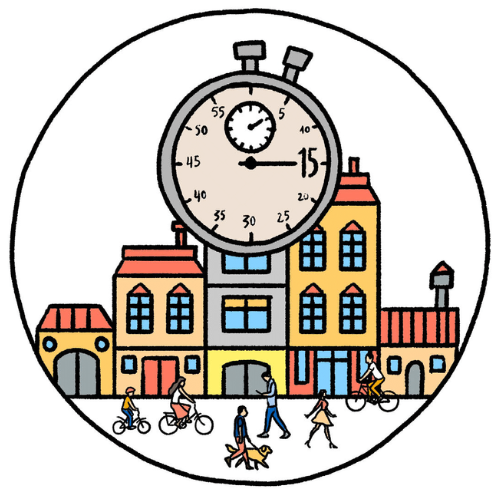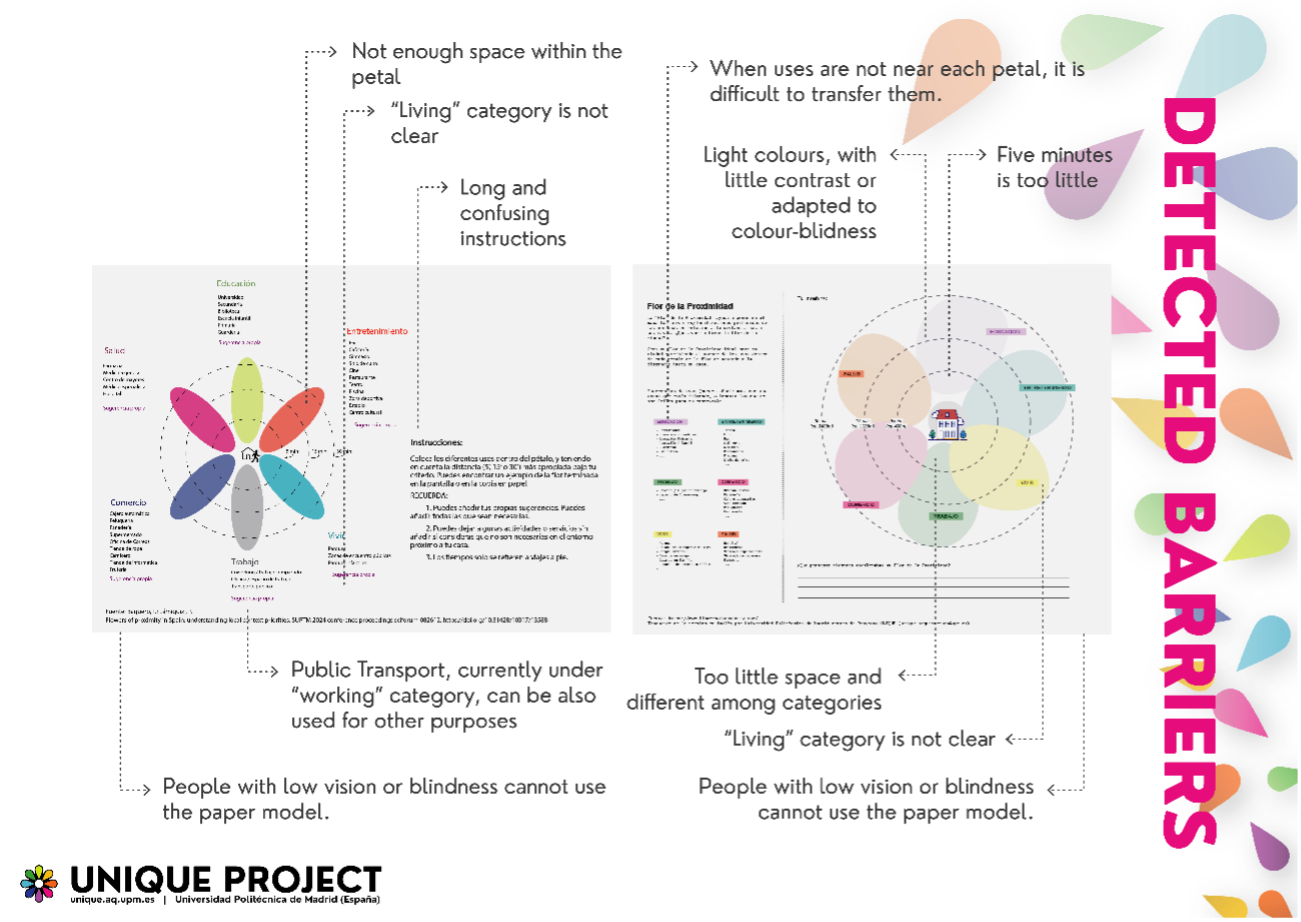Project Description:
UNIQUE seeks to embrace the needs and views of target groups in the proximity-city framework by including the final users’ perspective from the very inception of this project. They will help shape, analyze and detect potential flaws in current participatory tools, such as the Proximity Flower. This way, it would be possible to improve the design of urban spaces, so everyone feels welcomed and included. The participation would include different activities, including the co-creation of the inclusive “proximity flower”. This tool is used to gather information from the neighbors from certain areas as they can place the city uses they want to find near their house to foster proximity mobility.
This activity tries to engage citizens through handicrafts and artworks to boost their participation. However, it needs to be updated to fit everyone in the process, including people with disabilities who may face different barriers when using this tool, thus being normally excluded indirectly from this process.
Project Type: Kick Starting Grant
Theme: Sustainable Lifestyles, Mobility
Mentor:Cristina Luís
UNIQUE Project: Universal Design Strategies for the Proximity City
Project Overview
People with disabilities are recurrently excluded from research and public consultation. When included, they are just another number or subject of study. In the UNIQUE project, people with disabilities are active agents and have become Citizen Scientists. The Universidad Politécnica de Madrid (Technical University of Madrid) and the Asociación PUEDO (Association of People with Disabilities) joined forces to develop a project where people with disabilities would take the leading role, side by side with academic researchers, seeking to achieve one common goal: creating an inclusive Flower of Proximity.
The Flower of Proximity: An Inclusive Tool for Urban Planning
The Flower of Proximity is a tool that urban planners and researchers use to gather information from citizens on uses and activities they need near their homes and is easily reachable on foot to create the City of Proximity.
However, the Flower of Proximity workshops usually include a paper model, which is instantly unusable by those with severe visual disability and has instructions that are too long to be understood by people with cognitive or hearing disability.
In fact, our project started with a Focus Group where we detected all the abovementioned barriers and several others.
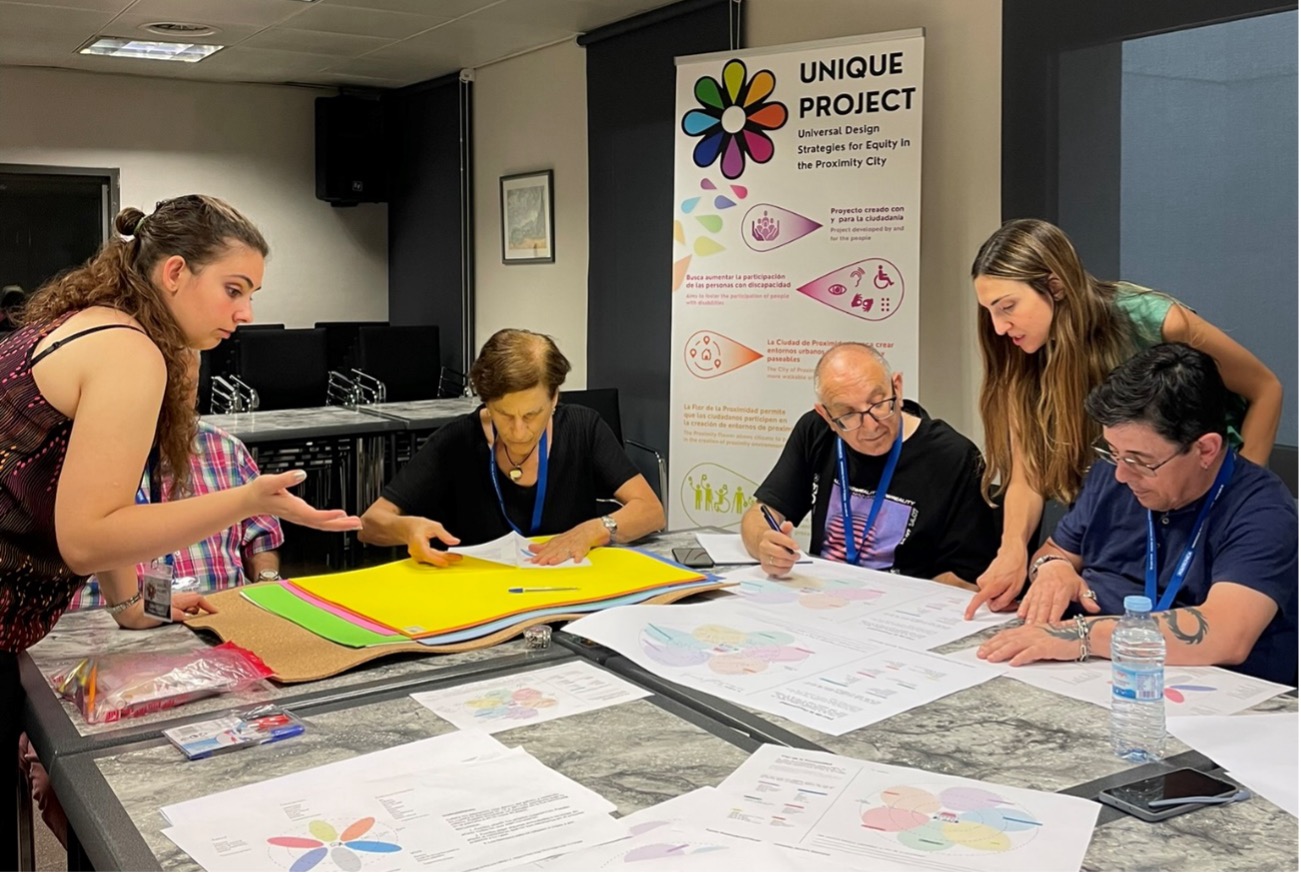
After that, we concluded that it was impossible to find a fit-all solution, so we decided to work first on building an accessible version on paper that could substitute previous versions but with accessibility updates.
Then, we developed a tactile version of the Flower, that will be disseminated in due course as a patent is being submitted.
This prototype was tested (and validated) by over 50 people with different backgrounds and from outside the research group:
- 11 people with disabilities
- 16 experts and students in social integration
- 17 architecture and urbanism students and professionals
- 18 older adults
This delivered very fruitful conclusions about the increase in the accessibility of the tool.
While previous versions of the flower offered insufficient contrast (option A), extensive and confusing instructions (option B), and reduced space for transferring uses (options A and B), option C provides more space, color contrast, and clear instructions. Option D allows blind people to use the tool, and, although there is still room for improvement, it was a valid prototype.
All these testers were asked for the most attractive and accessible option(s), and updated versions from UNIQUE were positioned top in both categories:

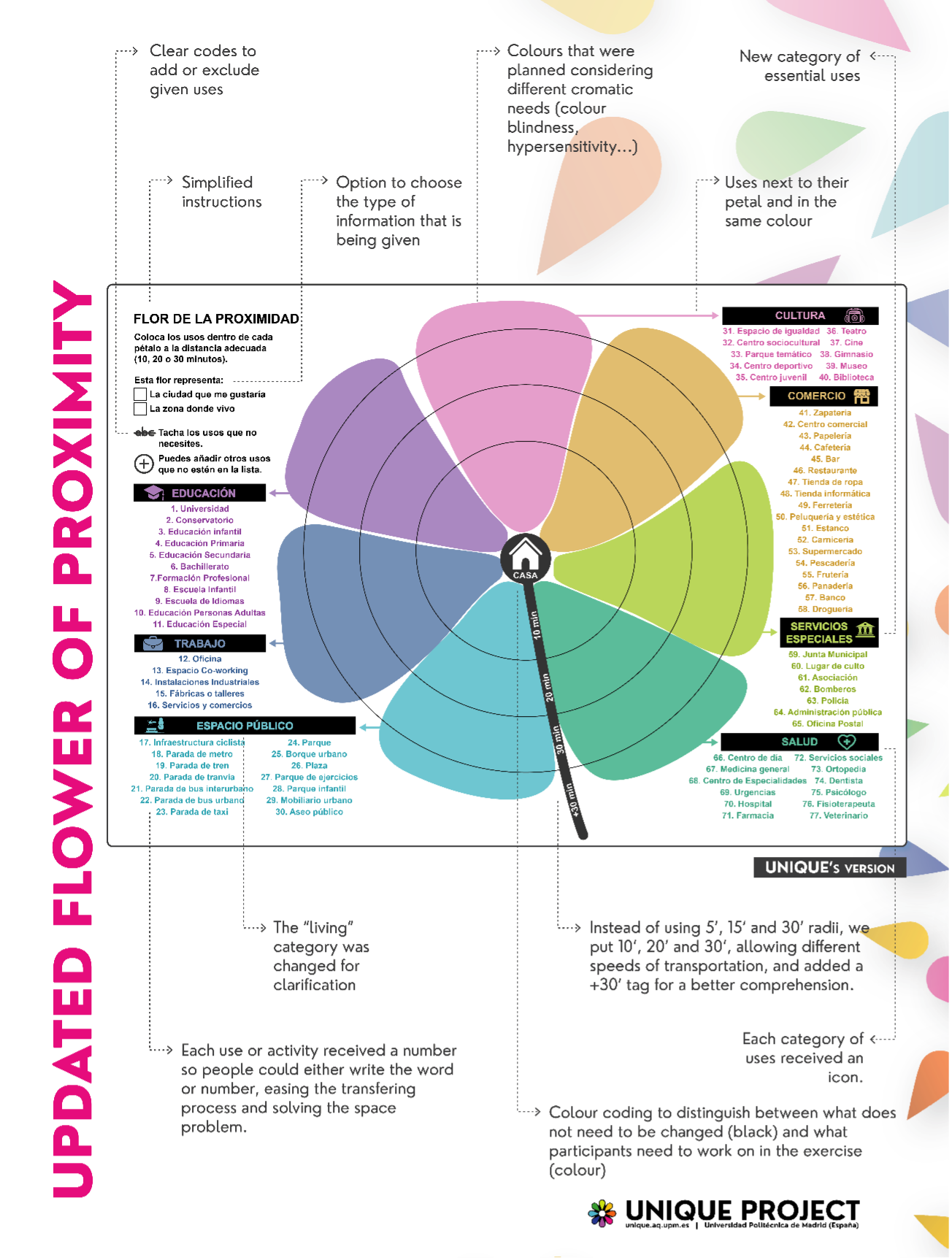
This project has been disseminated in multiple formats:
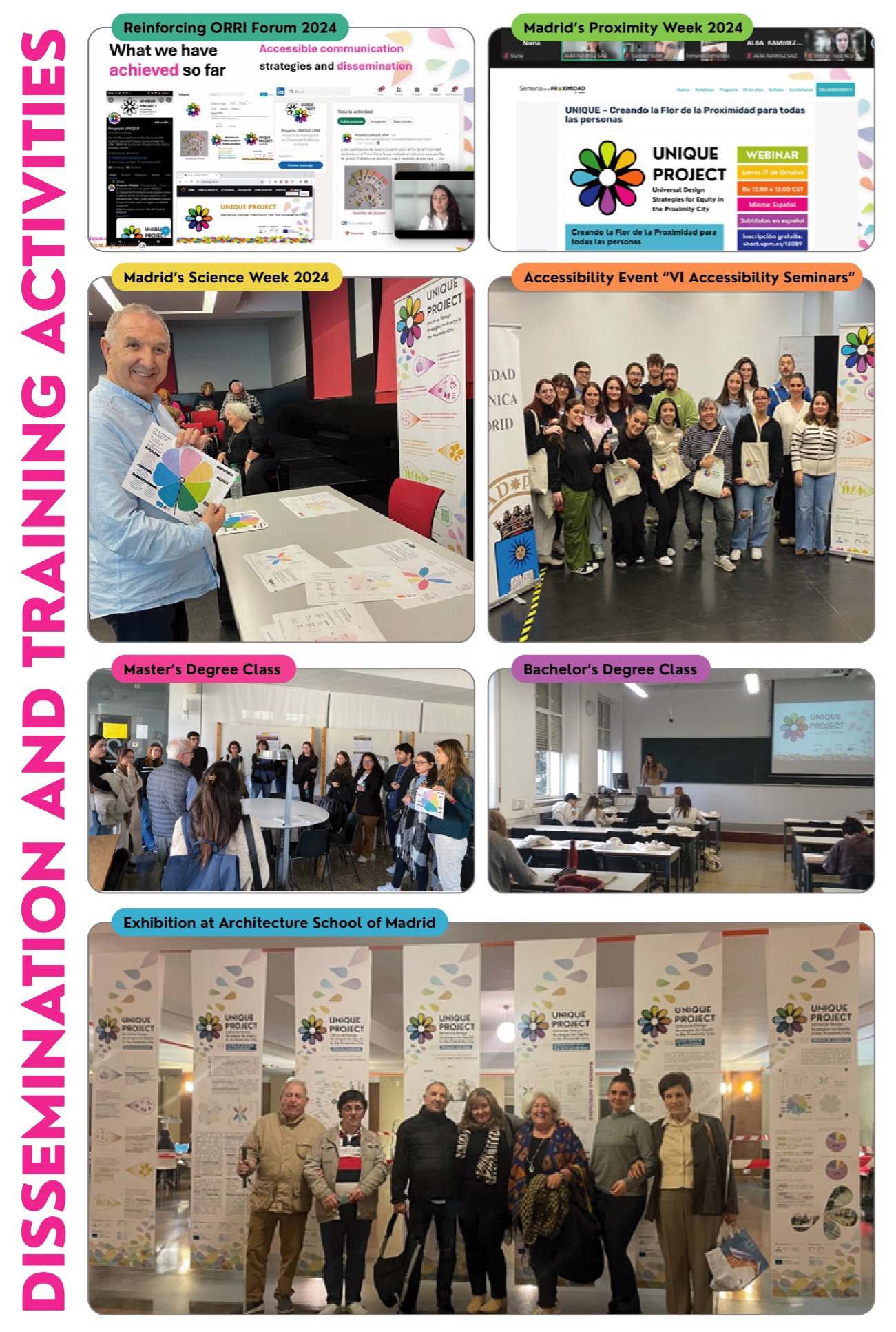
Participating in IMPETUS eased the updating of the tool, and thanks to the training, guidance, and resources provided, it was possible to achieve the expected results. We have already been asked to collaborate with universities from Portugal and Germany to deliver the tools in other languages, so they can use them in their workshops. In this regard, IMPETUS’ Sustaining Grant will be the perfect opportunity to expand the impact of this project in 2025.
Website: www.unique.aq.upm.es

